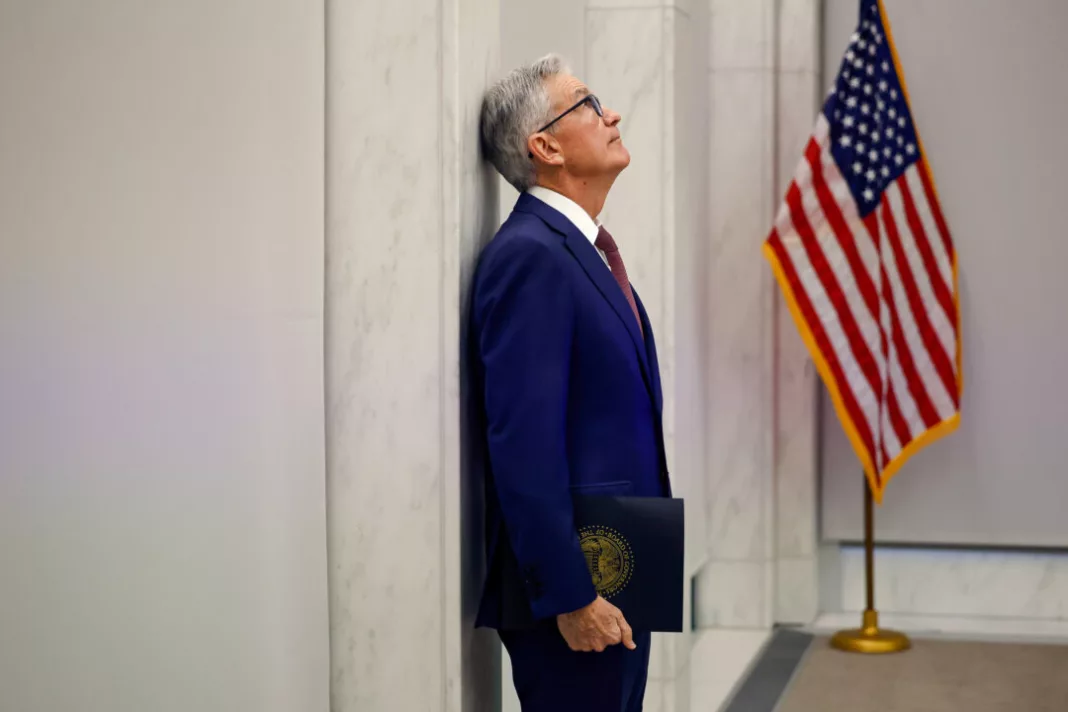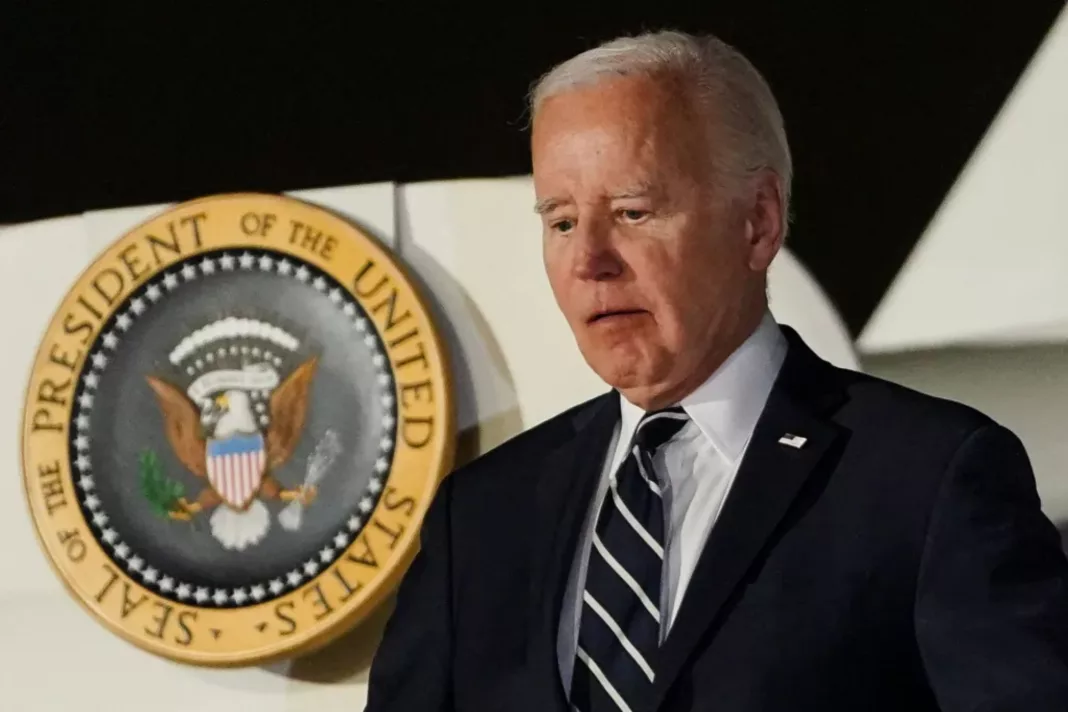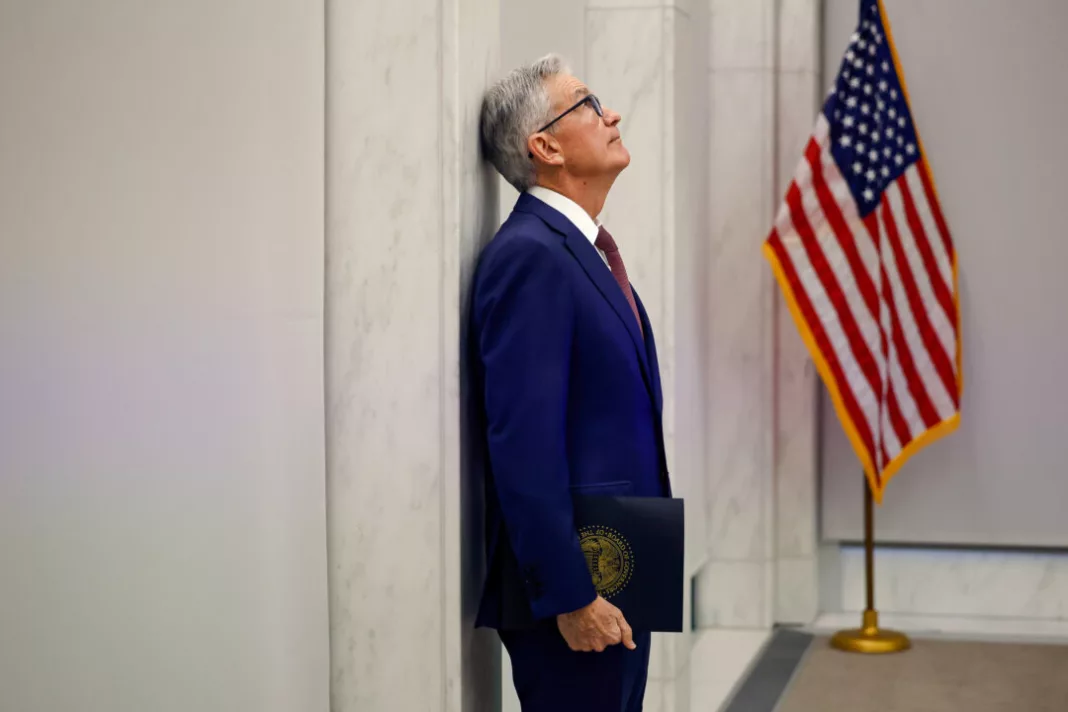Heading: Economists Predict Recession in 2024 Amidst Uncertain Economic Outlook
Most economists who predicted a recession in 2023 are now leaning towards a recession in 2024, according to surveys conducted by the Financial Times and the National Association of Business Economics. Job layoffs, a potential end to stock market runs, a lack of regional bank liquidity, and commercial office space vacancies are cited as contributing factors to these predictions. However, one man’s influence on the economy stands above all others – Jerome Powell, the U.S. Federal Reserve chair.
Jerome Powell’s interest rate decisions have given rise to hope, optimism, fear, and dread among economists. The question of whether the Fed will drop rates in 2024 after holding them steady at 5.25 percent to 5.50 percent since July is eagerly awaited by many. Nick Raich, the CEO of The Earnings Scout, compares this anticipation to the movie “Groundhog Day,” as rate cuts keep getting pushed off. The hope for rate cuts played a significant role in preventing a recession in 2023, along with massive fiscal spending and advancements in AI technology.
Consumer spending has also been credited for contributing to the United States avoiding a recession in 2023, as reported by Wells Fargo Bank. However, despite discussions about potential changes in U.S. monetary policy and the duration the economy can withstand high interest rates, there is no clear direction for future rate cuts.
Bankrate’s forecast for 2024 reveals that half of the economists polled predict a recession, despite steady employment rates below 4 percent and continued economic optimism driven by consumer spending. Mark Hamrick, Bankrate’s senior economic analyst and Washington Bureau chief, acknowledges the positive impact of AI on the economy but cautions against presuming its long-term stability.
Bankrate believes that the Fed is preparing for a “soft landing” by cutting rates. UBS Wealth Management also predicts a 60 percent chance of a “soft landing” in 2024, with the Fed balancing its desire to avoid a recession with labor market and core inflation data that suggest a need for somewhat restrictive monetary policy.
While the United States managed to avoid a full-scale recession in 2023, there are still lingering questions about the economy heading into 2024. According to Mr. Raich, economists’ predictions about a recession in 2023 may not have been wrong, just premature. The rise in interest rates and an inverted yield curve indicated signs of an impending recession, but it may have been delayed.
In conclusion, economists are predicting a recession in 2024 amidst an uncertain economic outlook. Factors such as job layoffs, stock market conditions, bank liquidity, and office space vacancies contribute to these predictions. Jerome Powell’s interest rate decisions and the hope for rate cuts play a significant role in shaping the economy’s trajectory. While consumer spending has helped prevent a recession in 2023, there are still concerns about the future. Bankrate and UBS Wealth Management anticipate rate cuts as a means to achieve a “soft landing,” but the exact direction of monetary policy remains unclear.


